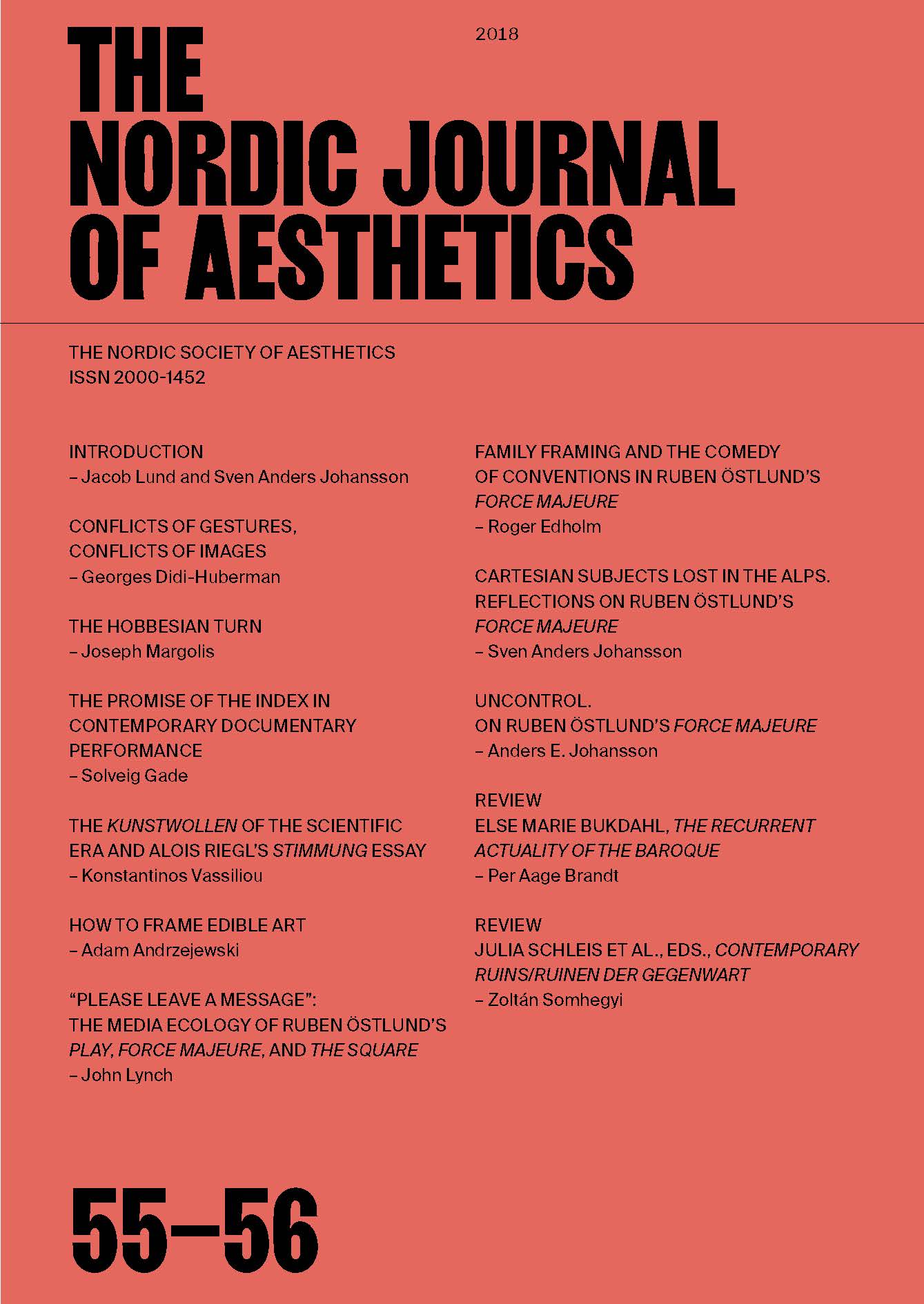ESSAY: THE KUNSTWOLLEN OF THE SCIENTIFIC ERA AND ALOIS RIEGL’S STIMMUNG
DOI:
https://doi.org/10.7146/nja.v27i55-56.110746Abstract
Alois Riegl’s essay “Die Stimmung als Inhalt der modernen Kunst” (1899) has been one of art historiography’s early attempts to bridge art and science. In this text, Riegl not only presents the background of some of his theoretical and methodological premises but he also provides an overarching argument for the way natural sciences af- fect modern spectatorship. In this way, he establishes the basis of a Kunstwollen for the ‘age of the natural sciences’ and describes its appropriate artistic traits. Addressing the intellectual and historical context of the Stimmung Essay, this article shows how Riegl’s ideas work in a subtle and intricate manner, involving the combination of sensual and phenomenological observations to modes of knowl- edge. In this respect, the relation of art and science does not seem to be settled on a fixed contemplative basis but on the combination of the art with cognition and affects.
Downloads
Published
How to Cite
Issue
Section
License
Authors who publish with this journal agree to the following terms:
- Authors retain copyright and grant the journal right of first publication with the work simultaneously licensed under a Creative Commons Attribution License that allows others to share the work with an acknowledgement of the work's authorship and initial publication in this journal.
- Authors are able to enter into separate, additional contractual arrangements for the non-exclusive distribution of the journal's published version of the work (e.g., post it to an institutional repository or publish it in a book), with an acknowledgement of its initial publication in this journal.
- Authors are permitted and encouraged to post their work online (e.g., in institutional repositories or on their website) prior to and during the submission process, as it can lead to productive exchanges, as well as earlier and greater citation of published work (See The Effect of Open Access).




